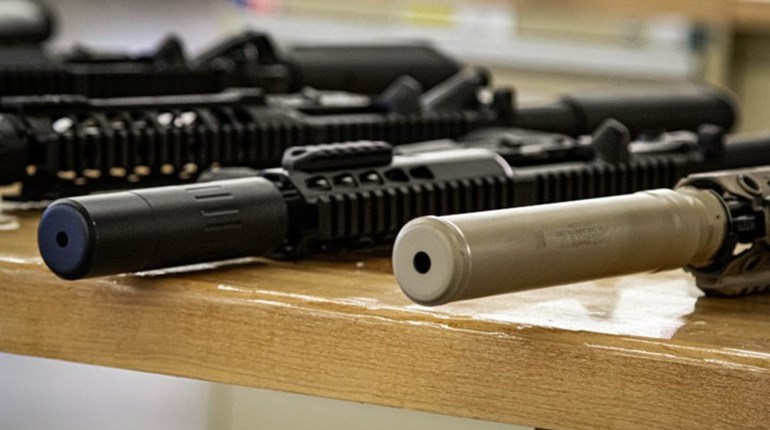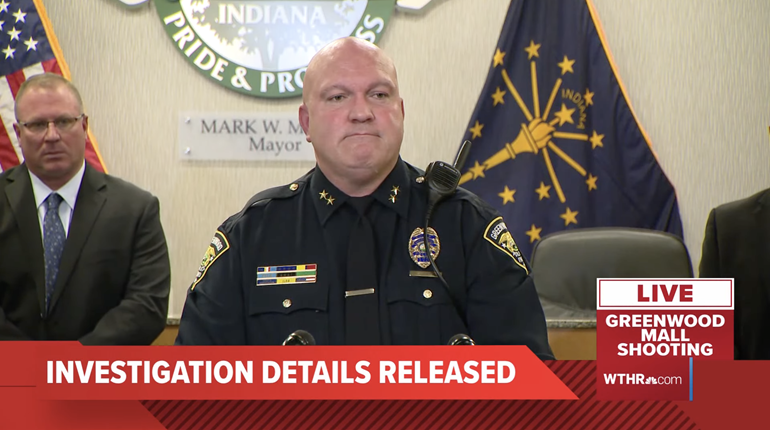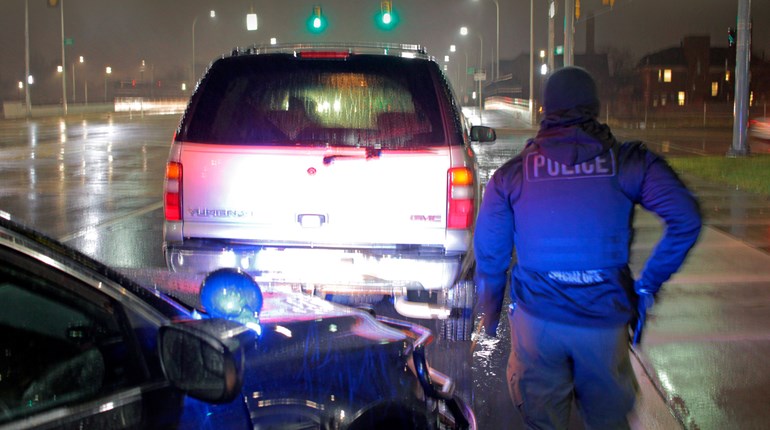
You’re an associate professor at an idyllic state university, where a majority of the 14,000-plus students are studying engineering, aerospace and business. You teach creative writing because you love language; on your web page, you write, “Poetry is how I make sense of things.”
One day, your reverie is disturbed by the site of “two figures in camo with guns” outside your office window. In a panic, you dive under your desk and call 911.
However, you are not about to become the latest cable news tragedy. You have called 911 to report two ROTC students who are about to begin rifle training exercises on the campus quad.
In today’s charged media climate, the reaction of University of North Dakota associate professor Heidi Czerwiec, while extreme, is not incomprehensible. Armed madmen on college campuses make sensational headlines.
However, no overabundance of caution could justify her next actions. Despite being reassured by both the dispatcher and campus police, she embarked upon a crusade against the ROTC: “… I guess I’ll be calling 911 for the next couple weeks—and I will. Every time.”
“It’s not my job to decide whether people carrying guns at school are an actual threat,” she said. “It’s my job to teach and to get home to my family. Such incidents receive so much attention in the national media, it would appear the only place campus mass murder is rare is actually on campus.
“It’s already highly inappropriate to conduct unnecessary military maneuvers in the middle of the quad. But with school shootings on the increase and tensions at UND running high, it’s especially irresponsible.”
Are tensions high? Are guns on campus in any capacity inappropriate? In the last VX, we asked if “gun-free” campuses put women at greater risk of sexual predation. Now we ask, “What’s your VX in a campus shooting?”
In truth, campus mass shootings are like shark attacks: For all the horror they inspire, they are very rare. However, such incidents receive so much attention in the national media, it would appear the only place campus mass murder is rare is actually on campus.
“The San Bernardino shooting is America’s 1,044th mass shooting in 1,066 days,” blared the Mass Shooting Tracker. The MST defines a mass shooting as “Four or more shot and/or killed in a single event … not including the shooter.” For example, an incident where four gang members are wounded counts.
Mother Jones magazine includes only incidents in which at least four people are killed. It currently lists 75 public mass shootings since 1982—an average of only 2.2 such incidents per year. However, Jones claims such incidents are on the rise. Like the MST, it relies on news accounts.
The FBI derives its data from actual police reports. They found 39 total “active shooter events” at educational environments from 2000-2013. Not all of those were colleges and universities, but that’s about two incidents per year, spread out over 900 four-year institutions with more than 2,500 students. FBI data isn’t clear that these incidents are on the rise.
In 2015, the Congressional Research Service (CRS) released a report about which James Alan Fox, a Northeastern University expert on mass murder, told Reason.com that the clearest pattern in the data is simply “a great volatility in the numbers. There’s no solid trend.”
The good news, then, is that your VX to being caught in a campus attack is about the same as being hit by lightning. The bad news is that you’re pretty much defenseless against lightning.
Nationwide, 90 percent of sworn campus police officers are armed—but only two-thirds of those aforementioned four-year institutions employ sworn officers. That means there is a one-in-three chance that the first cops to respond will be unarmed. That same FBI report shows that more than half of active shooter events end before the police arrive—which means you’re basically on your own.
“Although mass shootings are rare, when they happen, they are devastating because campuses are such vulnerable areas,” says David Burnett, former national president of Students For Concealed Carry. “We afford students, professors and employees very few resources to fight back. We tell them to huddle together, we tell them to shelter in place, to play dead. We put up signs. We advise them to find exit routes, to barricade, to hide, and how to take out a shooter with a book or a backpack.”
However, to Burnett’s knowledge, no college or university tells students, faculty or staff to shoot back.
Why not? Who else do we tell to respond to armed attack by heaving a copy of Campbell Biology?
Opponents warn that allowing campus carry will create a new “Wild West” by arming drunken underclassmen. But in the last VX, we underscored that no underage students are armed by such policies. Who else do we tell to respond to armed attack by heaving a copy of Campbell Biology?
We’ve heard these dire warnings before, but lawfully armed citizens have never wreaked havoc—not on our highways, or in our restaurants, or in our churches, or in our national parks.
So, why do campus carry opponents continue to lie to us about possible campus havoc? The answer is, because they have to; the truth only sets us free. Higher Ed is one of the last holdouts to lawful carry, and his hold is slipping.
Burnett says, “I asked a campus carry opponent, ‘What is the level of training at which you will be comfortable with someone carrying on campus?’ You quickly find out there is no scenario in their universe in which they would consider it safe to carry on campus.”
So, the risk of being in an armed attack at the U of VX is incredibly low. But, if the worst happens, what is your risk of surviving such an attack? Starting with a basis of 100 points, we add and subtract points for increased and decreased vulnerability:
There’s an active shooter on campus (+300). You are one of 10,000 students on campus, so numbers make your odds of survival good (-100). Active shooters are also generally unskilled marksmen (-25).
But he has targeted your instructor. He’s suddenly at your classroom door (+500), on which there’s no lock (+500). You are a veteran (-250), and a trained concealed-carry permit holder (-500).
But your campus is a mandated gun-free zone. You have brought a textbook to a gunfight (+1,000).
Subtract 5 points if you were a pitcher in Little League.

































